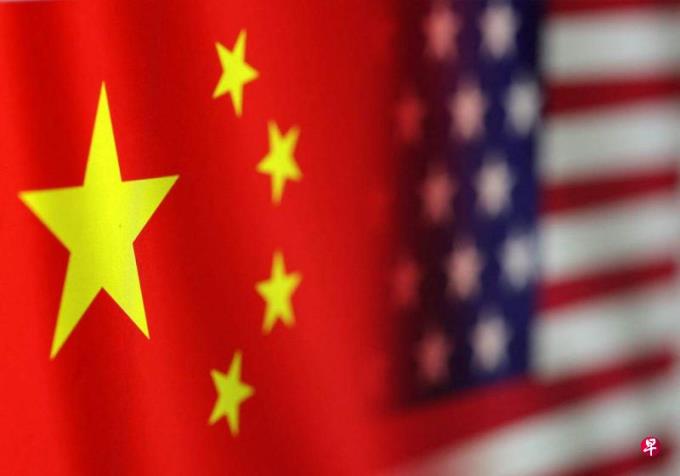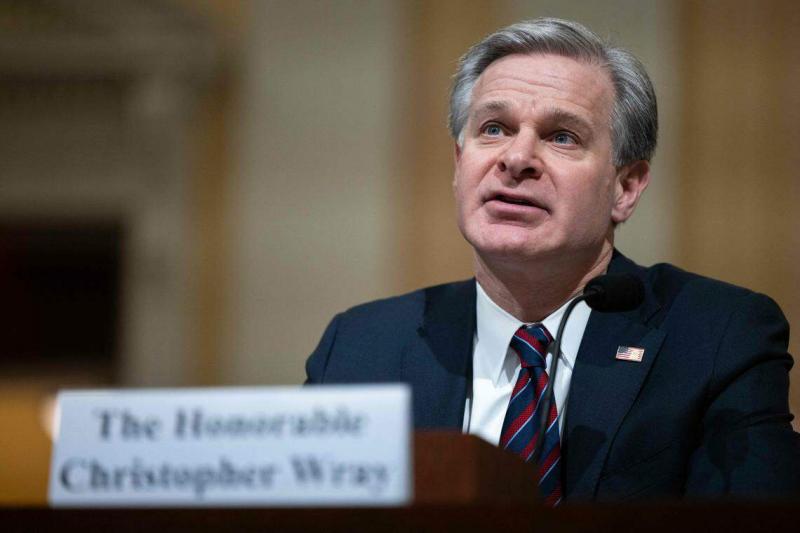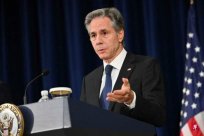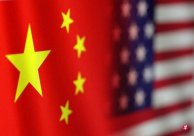
The US government's "China Action Plan" has ended for nearly two years, but the cold cicada effect is still there, and the scientific research cooperation between scholars of the two countries is decoupled.Scholars believe that China and the United States will continue to prevent high degree of prevention in key technologies involving national security in the future, but in the widely scientific research fields such as cancer, both parties should seek together.
Since the beginning of this century, in order to drive the development of national scientific research, China has introduced the introduction of overseas talent introduction policies such as the "Thousand Talents Plan", but this has caused the US government to be vigilant.In 2018, the United States launched the "China Initiative". With the lead of the National Institutes of Health (NIH), a large -scale survey has a background in mainland China or a aesthetic scholar who is in contact with China.In order to prevent Chinese technology and secrets from academic research.
China Action is planned to be announced on February 23, 2022, but the Bayeng government's high prevention of Chinese talents will not be reduced.Professor Rongxiu, the Ministry of Social Sciences, Hong Kong University of Science and Technology, told the United Zard that the investigation in the past few years has made everyone's hearts. Many scholars are worried that they will be investigated and simply give up research funds for US institutions such as NIH.
Michael Lauer, deputy director of the external research project, has criticized many scholars to receive NIH funds, but concealed that they were hired or subsidized by Chinese institutions at the same time.60%of scholars are said to be terminated or canceled for subsidies after investigation.
But MIT science and technology comments issued at the end of 2021 stating that many cases of the China Action Plan Survey were eventually revoked or rejected, and only about 25%of scholars were convicted.
Cui Dawei analyzed: "The United States actually does not care about negative crimes, but wants to stop illegal technology transfer ... There was a federal investigation bureau official saying that after a series of investigations, scholars would no longer conceal the connection with Chinese projects, orU.S. institutions can think twice in cooperation with China. "

The "Hundreds of People", the Chinese Elite Organization of Arizona State, issued a survey three years after the start of the China Action Plan stating that some Chinese scientists deliberately did not seek federal funding because they were worried that they were more stringent censorship.Some non -Chinese scientists also choose to cut off or restrict the connection with Chinese cooperative scholars, and no longer hire post -doctors.
The deterioration of political climate has prompted some Chinese scholars to leave the United States.According to data published by Xie Yu, an academician of the National Academy of Sciences in June last year, more and more Chinese scholars who have left US institutions have gone to China every year since 2018.In 2021, a total of 1,490 Chinese scholars left the United States and developed in China.
Chinese students in American universities have continued to decrease.According to the US State Department, there are nearly 290,000 Chinese students in the United States from 2022 to 2023, which is 20 % less than more than 370,000 in 2019.
David Bier, deputy director of the Immigration Research Institute of Kato Research Institute last year, said that the loss of talents is a devastating blow to the United States, because many researchers that the United States depends on many advanced technology fields from China or many from China or China or ChinaIt is a foreign student.
According to the data of the investigation company Kori Wei'an in November last year, the number of "Highly Cited Researches" cited by colleagues in the academic report has decreased year after year.However, it is 0.8%less; the "high -being of a cited scholar" in mainland China increased by about 1%last year, with 1275 people.
Cui Dawei interpreted that scholars reduced applications to US institutions, and the number of signatures and issues declined, and the number of Chinese and artists' co -published publications also decreased greatly, which caused damage to the US scientific research performance.
The introduction of Chinese talents is still difficult to shake the dominant position of the United States
On the other side, China has attracted overseas talents through considerable subsidies and strong benefits, and the level of scientific research has been improved.In 2022, China's R & D investment exceeded RMB 3 trillion (about S $ 570 billion) for the first time, nearly 30 billion yuan, an increase of about 10%over 2021.
Cui Dawei said that the scholars who return to China through the talent plan can not only get generous subsidies, but also serve as the leaders in the research team, and can also recruit more assistants to promote the results of research projects.
But he also pointed out that there are fewer top scholars who have returned to China, and the level is only about 1%of the United States. After many people return home, the speed of publishing in top journals is actually not as good as before.
Cui Dawei said that many overseas Chinese scholars should worry about domestic bureaucratic power and other factors, "willing to serve the country, not to serve the country."
Zeng Shaohua, a professor at the School of Machinery and Aerospace Engineering of Nanyang University of Technology in Singapore, Zeng Shaohua, executive deputy dean of the China -Singapore International Institute, said in an interview with Lianhe Morning Post: "Although China has increased its investment in key research fields, China wantsTo catch up with the United States, there is still a gap in technology in technology.P>
Zeng Shaohua said that China leads the United States in the fields of 5G technology and electric vehicles.However, the United States still overwhelmed China in terms of semiconductor and chip technology and biomedicine.
The US R & D investment in 2022 still leads the world, about $ 6800 billion (about S $ 9 trillion), an increase of about 5.5%over the previous year.
Scholars: Sino -US scientific research cooperation must find ways
Sino -US relations are slowly warming up, and the two countries' strict guards on each other may continue to combat scientific research cooperation and knowledge exchanges.The Higher Education Chronicle quoted Gatwood, associate academic chief of the University of Rochester last year, said that in the future, university researchers may learn to adapt to work in the "gray zone".
Zeng Shaohua said that the process of knowledge transfer has a certain complexity."In the early stages of research, it is very challenging which knowledge can be shared and which cannot be shared and which cannot be shared.The distribution is important.
Aerospace technology is one of the important battlefields of the China -US wrestling, and has received much attention because of the use of military and civilians.Cui Dawei said that in recent years, China and the United States have expanded the definition of "national security". In the next few years, it is unlikely to relax their vigilance easily, especially for sensitive areas such as nuclear and military and civilians.
However, he urged China and the United States to find a way for cooperative research in non -country security fields.For example, the efforts of China and the United States for many years should not stop due to political shackles.The two governments of the two countries should accurately define the category of sensitive technologies, so as to ensure national security more targetedly.
Zeng Shaohua also emphasized that restricting research and cooperation cannot achieve the goal of curbing the development of the opponent, and the knowledge transfer will not completely block it, and it will only slow down."Chinese scholars may suffer in the short termImpact, but it will soon catch up."
"Competition will promote rapid technological progress, not completely negative ... Research and education is boundless, so the future model of (China and the United States) is believed to be coexistence in cooperation and competition."




